By building international skills and experiences, especially outside the classroom, you'll stand out from the crowd, and greatly improve your chances of landing an international job after graduation.
Start building your international
CV now! Here's how:


Academic Studies
Add to your academic profile by considering the following:
Broaden your skills with electives
For example, a history major should have four finance or business courses. Include language studies with all disciplines.
Consider a master's abroad
A master's is a prerequisite for many international positions. This is especially true in the social sciences, pure sciences, and business. No matter what your field, a master's education abroad can be extremely valuable to your career.
Other on-campus opportunities
Help organize a conference; participate in a research project; work as a teaching assistant; write a book review for an academic journal; make public presentations; seek out team projects with foreign students. In short: Get involved!

Networking & Cross-Cultural Experience
Put yourself out there and interact with people who have lived and worked internationally.
Network with international experts in your field of interest
Talk with as many as you can. A good way to do this is to write essays that require you to speak directly to someone working internationally in your field of interest.
Guide foreigners who are new to your country
Act as a tour guide for visiting professors; assist with foreign student orientation; work with refugees; teach English (ESL).
Befriend foreign students on campus
Converse with international students; become familiar with their food and social behavior; visit them in their home countries; participate in foreign students' associations.
Become knowledgeable in another culture
Hang out at ethnic social clubs; become knowledgeable in one or more types of ethnic music; discover the history of a region or country; learn ethnic cooking; join an Internet group with foreign members.

Experience the World Abroad
Nothing beats first-hand experience! Get a taste of what it's really like to live abroad by going overseas to study, intern, work, volunteer, or travel.
Work internationally for two to six months
Be an intern, co-op student, or volunteer, preferably in your field of expertise. Try for two professional internships over the course of six years of study. There are thousands of international internships available each year. Many of them are paid positions allowing you to liv eand work in interesting parts of the world.
Study abroad for one or more semesters
Participate in one or more exchange or study abroad programs. Go for as long as possible, and if possible, go more than once. While abroad, immerse yourself in host country culture.
Travel abroad for two to six months
An experience like backpacking for six months will let you interact closely with people from other countries - and you'll pick up the skills desired by international employers. Strongly consider taking a gap year to gain any manner of international experience.
Have a career objective when traveling
Double the value of your time abroad by combining objectives. After your study or work placement abroad ends, extend your stay to teach English, volunteer with a local charity, or improve your language fluency. Your experience will be even richer.

Hard Skills
No matter what your international career objectives, transferable skills will make you an attractive prospect just about anywhere.
Language skills
Be able to speak and read a language other than your mother tongue. Consider learning Spanish or whatever language your extended family speaks. Be an active listener and pick up words whenever you travel.
Economic and geographic knowledge of the world
Have a solid knowledge of the political and social forces shaping the planet. For a well-rounded start on this, read magazines like The Economist.
Business skills
No matter what your area of study, develop business skills. Employers seek scientists who can understand market research, engineers who can help commercialize products, and political scientists who can work in trade promotion. There is a need to assess the business aspect of almost every field.

Writing and analytical skills
Demonstrate these skills outside course work by participating in a research project, writing a brochure, publishing an article, or writing content for a website.
Computer skills
Acquire strong word processing skills (table of contents, footnotes, styles, etc); be comfortable using spreadsheets (budgets, tables of data, etc); be familiar with databases (flat files, relational databases, etc); possess internet research skills beyond Wikipedia.
Other management skills
Project management, accounting, training, research, report writing, and evaluating are all valuable skills.

Soft Skills
Your impressive array of hard skills has far greater value when you're able to communicate, lead, or work in a team.
Organizational and leadership skills
Demonstrate these through work and volunteer experience, preferably with an international group. Organize an event or become an executive member on a committee.
People Skills
Develop strong people skills; don't underestimate the universal importance of doing so. Converse with people and learn to actively listen.
Intercultural communication abilities
Demonstrate these by becoming adept at describing behavioral patterns in cross-cultural work and social environments. Learn to describe these experiences in a professional way.
Coping and adapting skills
Demonstrate your ability to deal with change by explaining how you coped when living abroad. Explain that you succeeded even while separated from your regular support structure of family and friends.

International Job Hunting Skills
You're on your way to building an ideal international profile. Now, how can you find a job?

Essentials for finding
international work
Those who are successful at finding international work have almost all done something extraordinary to land their first job. They've gone out on a limb, acted boldly (but politely), been entrepreneurial, sacrificed certainty, and taken risks to land that first job.
International employers are looking for individuals who are fully committed to international work and living. Your job hunting methods should reflect this.

International careers are built over time
Many international employers will insist that you have international experience before they will send you abroad. The key to gaining this experience is to dive into "all things international" while you're a student. You need to build up a host of internatinoal experiences at home and abroad in order to be considered for an international position - but the good news is you can have a blast doing it!
Reproduction rights for this Visual Guide granted to schools.
©Intercultural Systems / Systèmes interculturels (ISSI) Inc. All rights reserved.
Individuals can purchase access to the entire MyWorldAbroad website, 300+ articles, 4,000 resources, 30 Quick Guides, and much, much more.
Schools can purchase access to the full
MyWorldAbroad website for staff and students. Visit
www.myworldabroad.com to see the full product description and sign up for a webinar.























